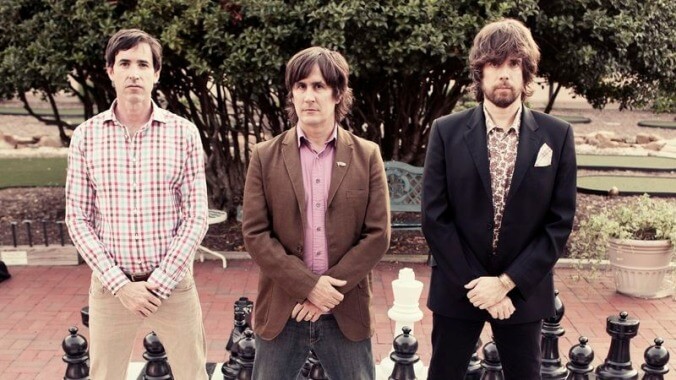Unlocking the literate lyrics and wonderful melodies of The Mountain Goats
Here's where to start with the indie-folk excellence of John Darnielle's long-running musical masterpiece of a band.

Pop culture can be as forbidding as it is inviting, particularly in areas that invite geeky obsession: The more devotion a genre or series or subculture inspires, the easier it is for the uninitiated to feel like they’re on the outside looking in. But geeks aren’t born; they’re made. And sometimes it only takes the right starting point to bring newbies into various intimidatingly vast obsessions. Gateways To Geekery is our regular attempt to help those who want to be enthralled, but aren’t sure where to start. Suggest future Gateways To Geekery topics by emailing [email protected].
Geek obsession: The Mountain Goats
Why it’s daunting: During the most recent season of The Walking Dead, the episode “Still” ended with a haunting musical refrain that spoke both to the episode’s deeper themes of the characters’ troubled pasts and the fact that the show is set in a zombie apocalypse. “There’s gonna be a party when the wolf comes home,” sang a male voice over images of the characters setting a house on fire. Social media lit up with questions about what that closing song, with its references to Rome being founded by two men raised by a wolf and some unspecific tragedy in the singer’s past, could possibly be. The song was “Up The Wolves,” and it was likely the first exposure many in the show’s audience had to the music of the indie-folk rock band The Mountain Goats, which has been, at various times, a one-man singer-songwriter project, a loose collection of collaborators, and a trio.
The only constant has been John Darnielle, the songwriter for the project and the central figure in all the following incarnations of the band. When Darnielle started The Mountain Goats, he wrote and recorded songs, in low fidelity, into a boom box, then released them on a variety of formats and labels. The first proper Mountain Goats release (a cassette-only album titled Taboo VI: The Homecoming) arrived in 1991, while Darnielle was working as a psychiatric nurse in Norwalk, California, and attending Pitzer College. News of his project slowly spread, and his first proper studio album, Zopilote Machine, arrived in 1994. (It was reissued in 2005.) As such, The Mountain Goats has a rich body of work extending beyond its 14 studio albums (which, to be fair, often collected material from the earlier cassette releases). What’s more, the band’s recording career splits into two distinct eras—the low-fidelity years, stretching from Zopilote to 2002’s All Hail West Texas, and the years of more traditional production quality, from 2002’s Tallahassee to the present.
The chief attraction of The Mountain Goats, then, has always been Darnielle, and no matter the considerable musical talents of his collaborators—who have included, at various times, such figures as Peter Hughes, Jon Wurster, John Vanderslice, and Rachel Ware, among others—it’s often Darnielle’s lyrics that prove the major draw for the band. Erudite, literary, and often witty, his words are as likely to bounce between obscure mythological or Biblical references and off-the-cuff jokes as they are to relate some heartbreaking anecdote from his own (or an imagined) past. Darnielle’s songs very often take place among the downtrodden and desperate, but they also hold open the possibility of mercy and grace, of a potential for escape or transcendence. He writes honestly and brutally about human relationships, often ones in crisis, but there’s always a slim glimmer of hope somewhere within his work.
But that also means there’s a lot of Mountain Goats—in a variety of moods—for the new listener to get through. As the band embarks on a short summer tour, there’s no better time to get into it and its vast, often starkly beautiful discography.
Possible gateway: The Sunset Tree
Why: This is the easiest “possible gateway” in the world. If Tallahassee opened the door for The Mountain Goats to a slightly more mainstream audience than the cult one it already had, then 2005’s The Sunset Tree showed the band strolling through to reach the kids who read music blogs and had maybe heard of “No Children” off the earlier release. Even people who have never heard of The Mountain Goats, may still have heard what’s likely the band’s most famous song, “This Year.”
